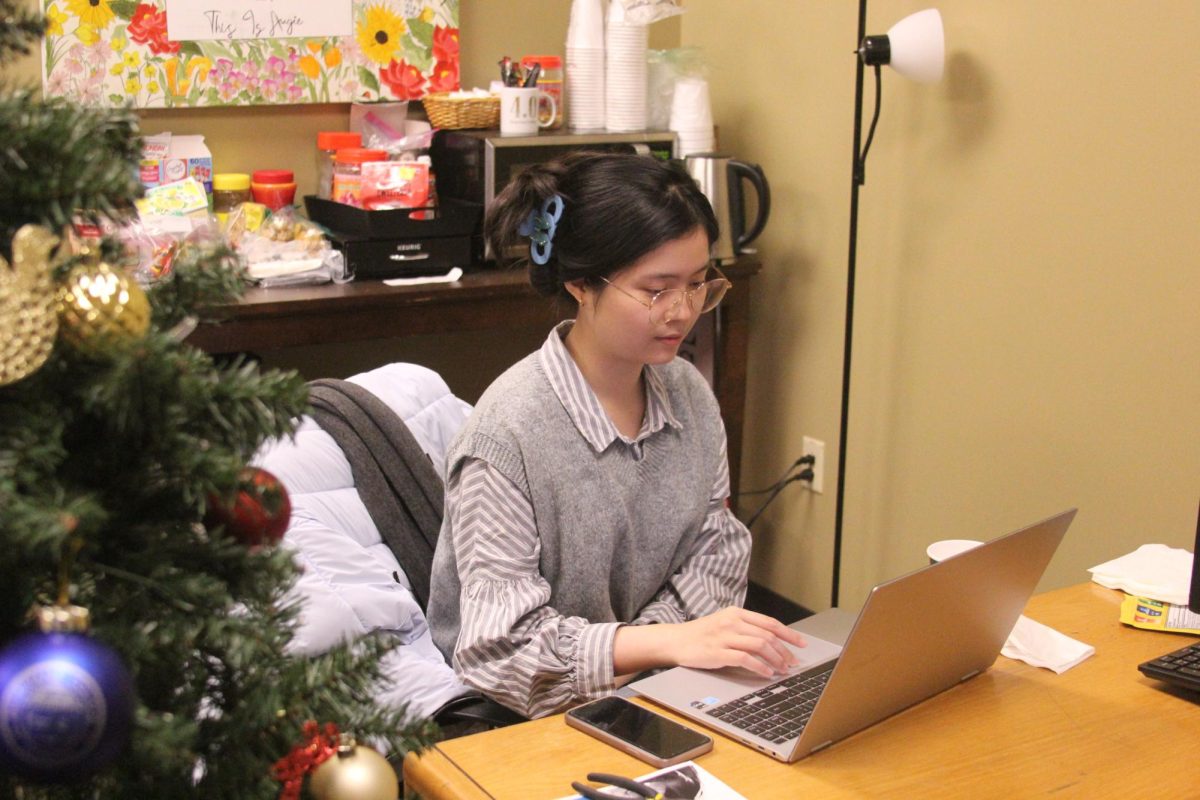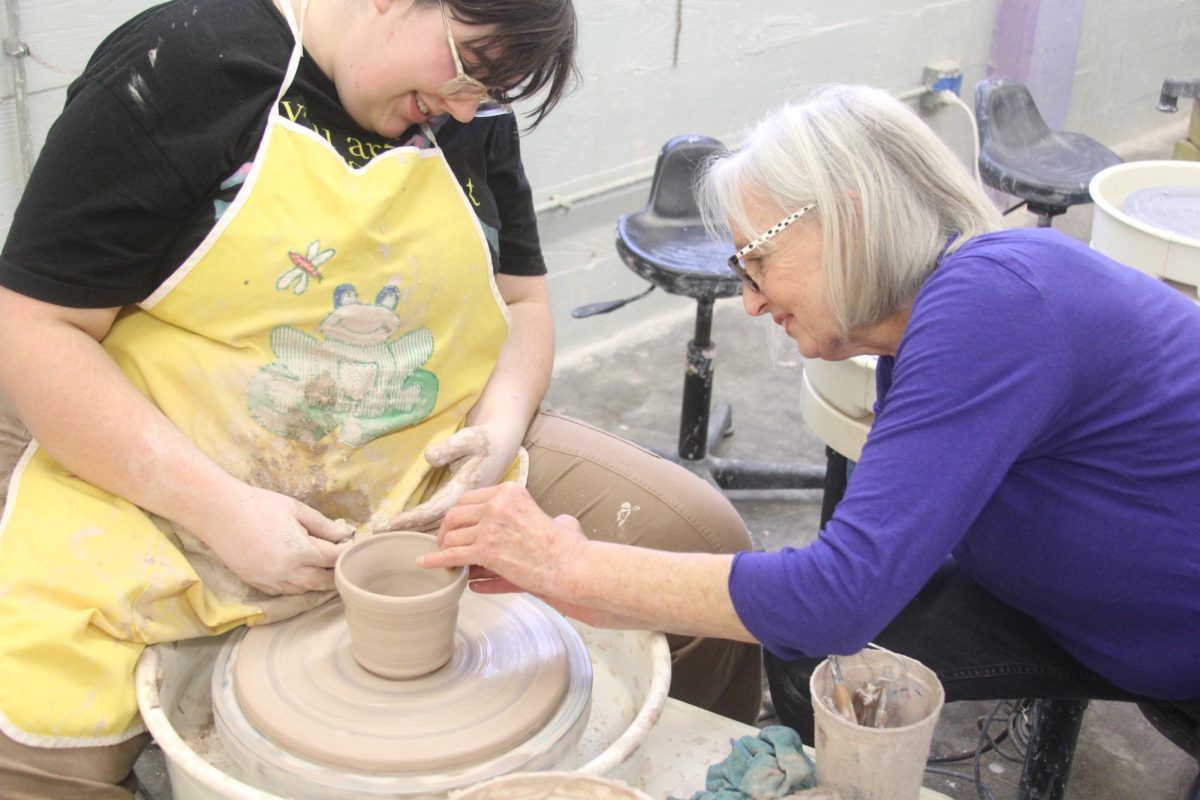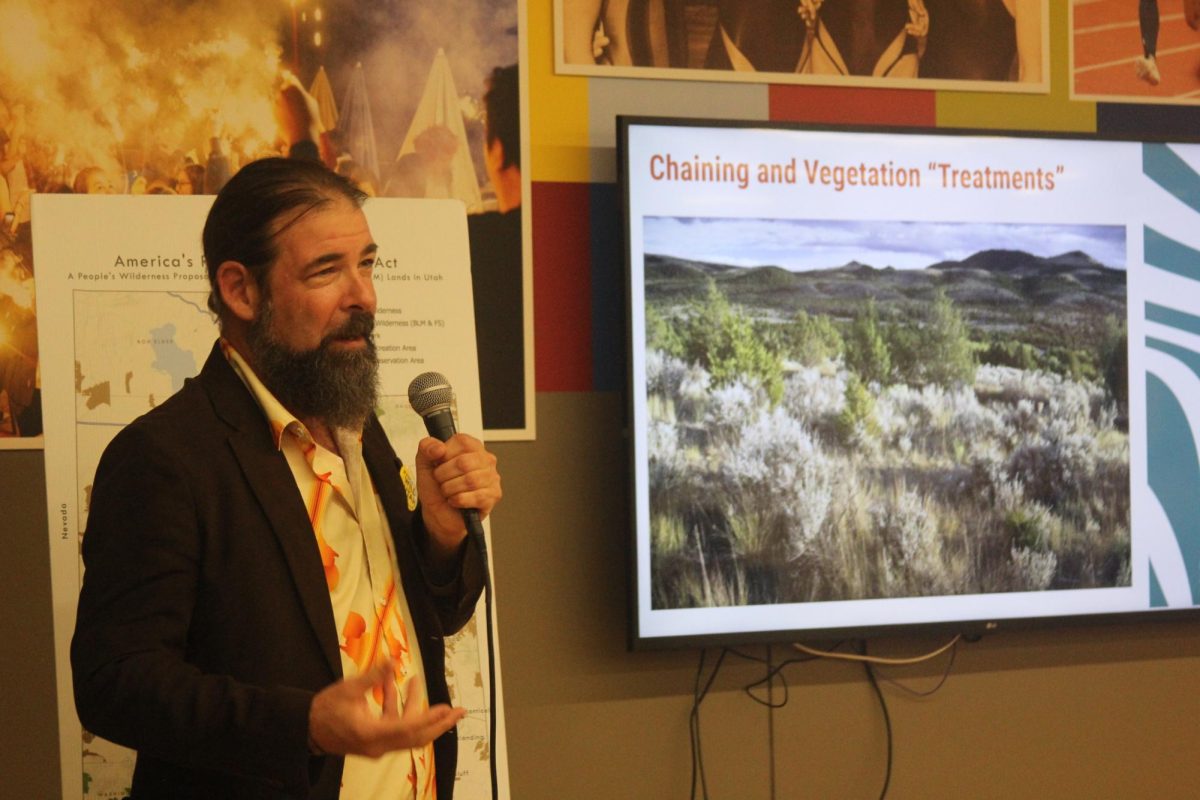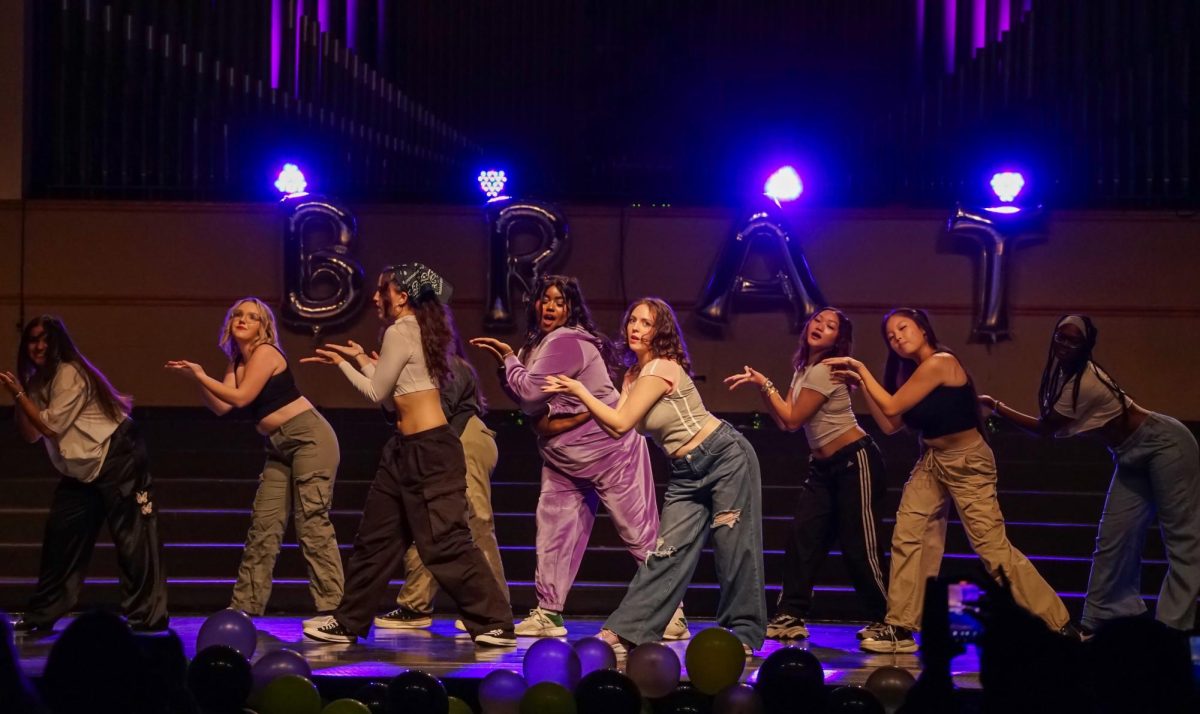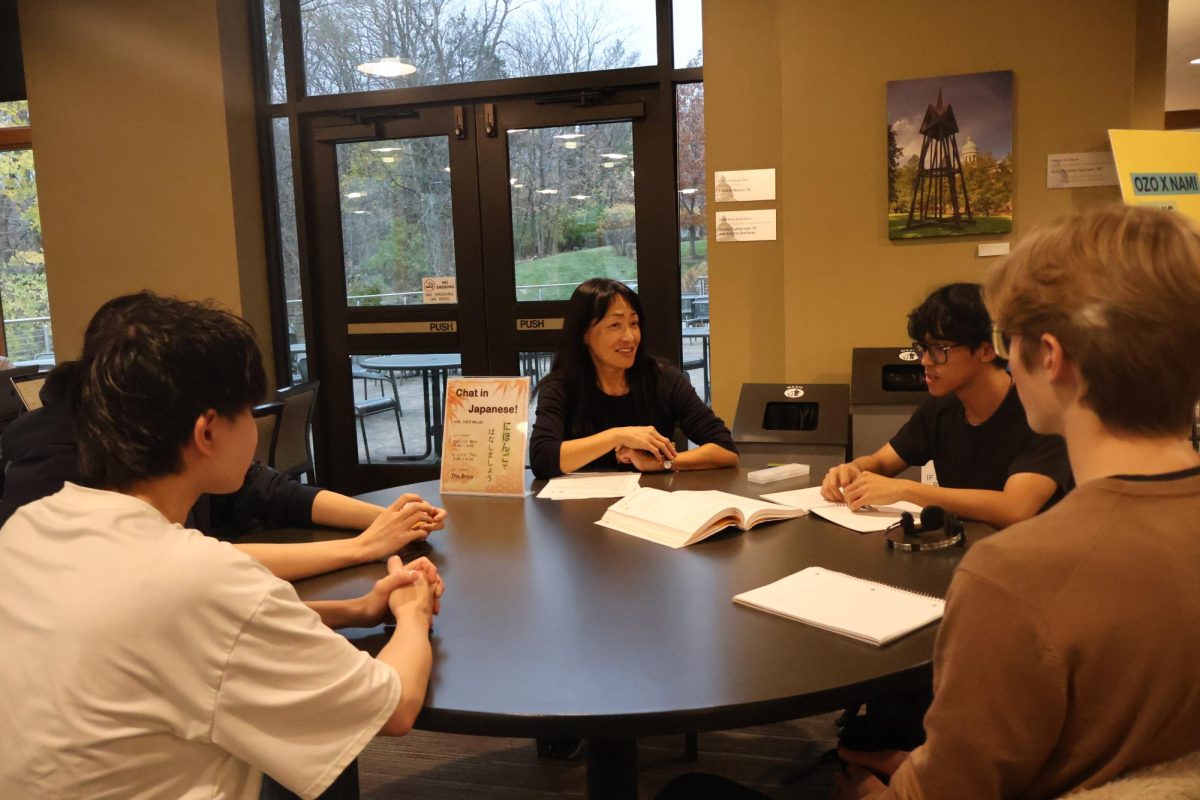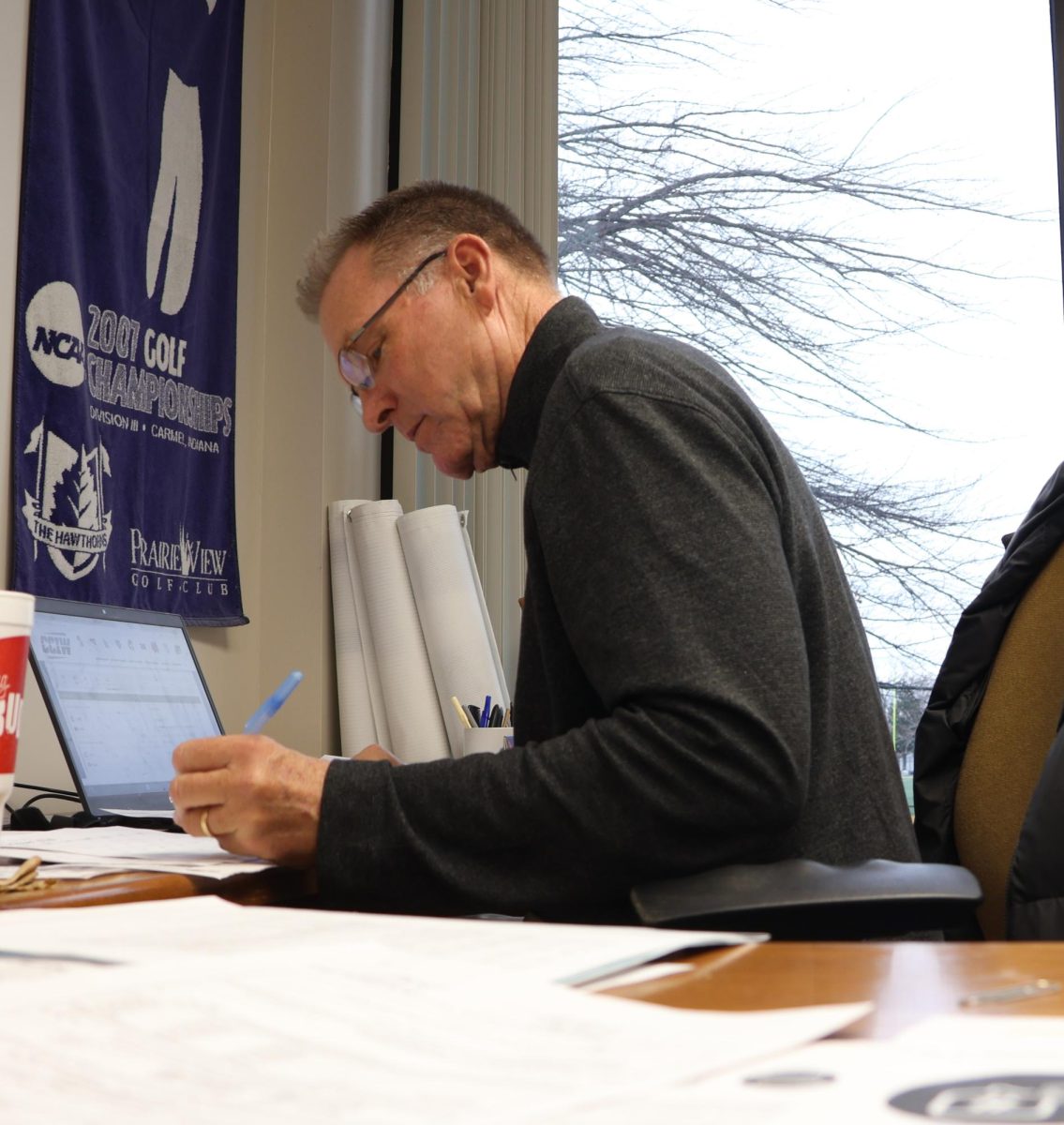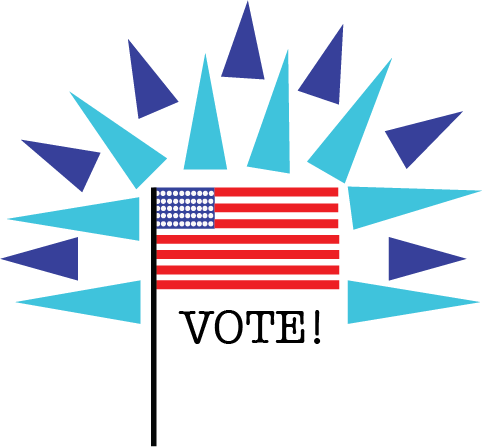Augie students help to raise young voter statistics
November 16, 2022
Historically, young voters between the ages of 18 to 29 years old have the lowest turnout, according to the New York Times. Despite this, 2022 midterm elections exit polls and research from Tufts University show a large increase in young voter turnout, with nearly 30 percent of people between the ages 18 and 29 are estimated to have voted.
Augie students cast their votes this Election Day, joining other Gen Z and young millennials’ movement to increase young voters turnout. Junior Bethany Abrams and her roommates, Emily Allison and Aubry Dewald, went out to vote.
“We went to the Karen Baptist Church and voted in person,” Abrams said. “Normally my address to vote is my home address, so I had to go there and change it, but it was a quick and easy process. I’m so glad I got to vote and let my voice be heard.”
Dr. Ryan Kopatich, visiting assistant professor of psychology and neuroscience, encouraged his students to vote by offering extra credits for eligible voters who vote.
“Students who want to earn the credit just need to show me an “I voted” sticker, or tell me what it says in an absentee ballot if they do so,” Kopatich said. “We want to encourage here at Augie that students, when they leave here, are active and engaged citizens.”
For students who are not eligible to vote, international students, or students who simply chose not to vote, Kopatich offered alternate assignments for the extra credit. He emphasized the importance of the diversity of citizenship all over the globe, as well as the freedom of choice.
“For others, they can tell me the importance of being able to vote or why they choose not to. International students can tell me how the political system works in their home countries and what it is like to be a citizen in those countries,” Kopatich said. “It’s really just to get a different perspective on the idea of citizenship.”
An absentee ballot, or mail-in ballot, is a vote cast by people who are unable to present at their local polling station. Many college students do not permanently reside in the state of the college they go to, and same goes for Augustana. Out-of-state students utilize the mail-in ballot to deliver their vote.
Junior Abby Holtan, a Minnesota resident, voted through an absentee ballot, rather than in-person.
“The process is simple,” Holtan said. “I filled out the form online, the government sent me my ballot, and then I sent it back to my state.”
Mail-in ballot process varies by state. In Holtan’s case, she needed to find a registered Minnesota voter to be her witness.
“It was a struggle to find one. I hope there is an easier way to do that,” Holtan said, referring to the difficulty of voting in her home state.
Sophomore Mackenzie Monroy chose not to vote this year. She wanted to vote for someone who she aligns with, who shares her thoughts and ideologies, and that would require having knowledge on the candidates. This is a challenging process that stopped Monroy from voting.
“I am not a political person, so I cannot really wrap my head around things in terms of political stuff,” Monroy said. “I don’t know who the candidates are, or how the voting process is. It would be difficult research that I did not have more time to focus on, and I don’t want to vote if there is a lack of knowledge on the candidates.”
According to Dr. Paul Baumgardner, assistant professor of political science, the purpose of a higher education institute like Augustana is to introduce students to the habit of voting.
“College can encourage voting and make it exciting, while also communicating to students that their votes have consequences for the future of American politics,” Baumgardner said. “Important laws and public policies would be enacted on the basis of these elections and impact our lives.”

